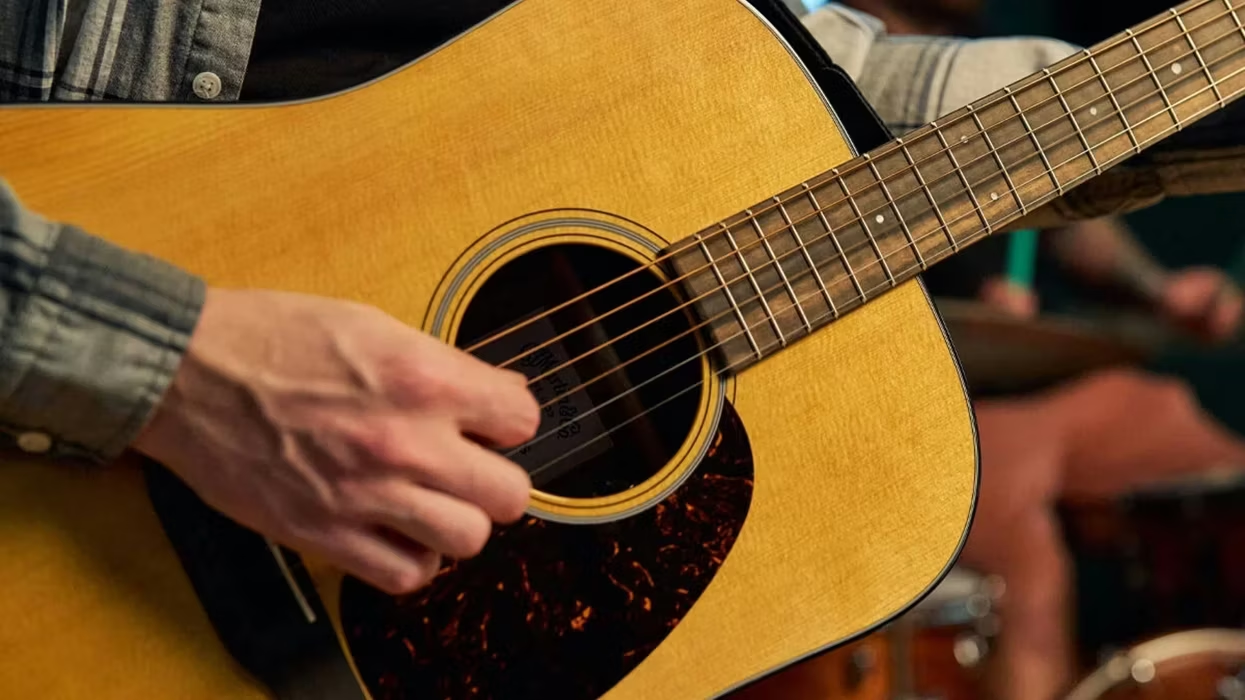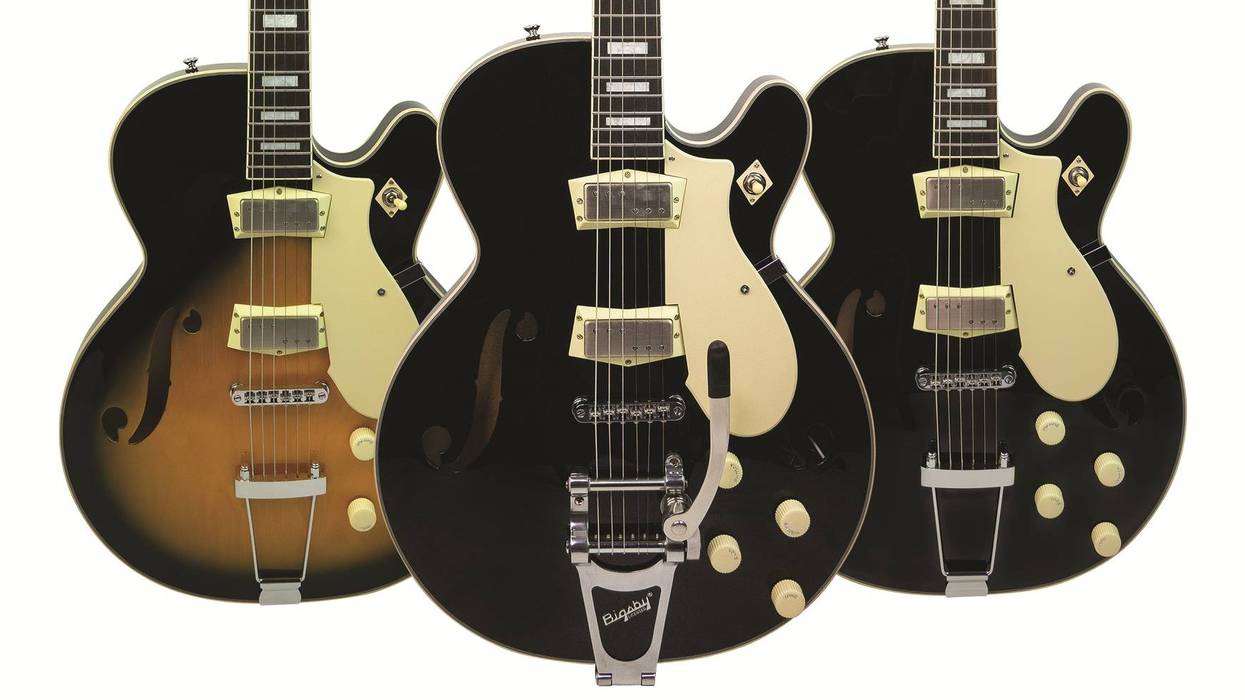Jersey City, New Jersey (April 22, 2013) — Like so many in the Premier Guitar community, we’re deeply saddened to hear that the great singer and performer Richie Havens has died at age 72 from a heart attack.
The 1969 Woodstock Festival brought music lovers many memorable moments. One of the most enduring was that of Havens strumming his Guild D-40 flattop like a man possessed while singing protest songs with his gravelly, soulful voice. His spirited renditions of “Handsome Johnny” and “Freedom” united the sounds of folk and soul music in a way no one had heard before and literally brought the Woodstock crowd to its feet.
It was through Havens that most guitarists coming of age in the ’60s first learned about open tunings. At the time, those of us who, armed with our Les Pauls and Strats, were attempting to follow in the footsteps of Jerry Garcia, Jimi Hendrix, and Pete Townshend simply had no idea you could play guitar the way Havens did. His strumming was so intense that by the time he opened the Woodstock Festival, he’d almost worn through his D-40’s soundboard.
But beyond his powerful rhythm chops and unique approach of using his fretting hand’s thumb to barre chords was a musician who had a message of freedom and harmony to convey at a time when the country was seething with political and social upheaval. Havens spoke to the Woodstock generation in our language, but in his songs we also heard the wisdom of an elder—someone who had lived a bit longer than we teenagers and whose music had a depth and substance we had yet to acquire.
The eldest of nine children, Richard Pierce Havens was born in Brooklyn, New York, in 1941. As a kid he learned traditional music from his mom—including Irish ballads and Jewish folk songs—and later sang gospel before moving to Greenwich Village in his 20s to join the burgeoning folk scene.
In the autobiographical section of his website, Havens says, “I saw the Village as a place to escape to in order to express yourself. I had first gone there during the beatnik days of the 1950s to perform poetry, then I drew portraits for two years and stayed up all night listening to folk music in the clubs. It took a while before I thought of picking up a guitar.”
Yet once he did, he quickly became an integral part of the Greenwich Village scene, bringing a gospel fervor to a genre that was sometimes in need of a little rock ’n’ roll. After recording two albums on a small independent label, Havens had a breakthrough in 1967 with Mixed Bag, which was released on Verve, one of the most vital major labels of the day. His interpretation of George Harrison’s “Here Comes the Sun,” from the 1971 album Alarm Clock, became one of his best-known songs. Havens typically played in open D tuning, sometimes dropping the 3rd string from F# to F, resulting in open D minor tuning.
Havens played and toured until retiring from the road three years ago. He released 21 studio albums, toured the world playing many major festivals, helped produce the 25th Anniversary Woodstock Festival, appeared in the stage production of the Who’s Tommy, had lead roles in several films, and in 1991 won the Peace Abbey Courage of Conscience Award for his charity work.
Rest in peace, Richie Havens, and thank you for your inspirational music.


















![Rig Rundown: Russian Circles’ Mike Sullivan [2025]](https://www.premierguitar.com/media-library/youtube.jpg?id=62303631&width=1245&height=700&quality=70&coordinates=0%2C0%2C0%2C0)
















![Rig Rundown: AFI [2025]](https://www.premierguitar.com/media-library/youtube.jpg?id=62064741&width=1245&height=700&quality=70&coordinates=0%2C0%2C0%2C0)











